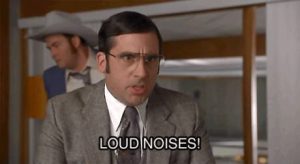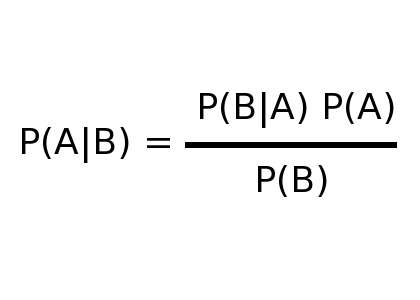I have become that guy. You know THAT guy that likes to discuss politics on Facebook. I’m sorry, I just can’t help myself. I’m curious and I want to try and figure put how people think.
What I am finding is that people are fighting and not arguing, in the classical definition of the word, which is to seek understanding.
As a political professional, I think our primary mission is to discover HOW people make a decision – particularly political decisions – so that we may figure out HOW to effect these decisions.
I got myself into a heated discussion because I questioned a fellow conservative on their black/white thinking. I am constantly aware of people expressing an opinion as 100% true with no room for discussion.
This was my final comment that I placed on Facebook when trying to exit the conversation:
Here is all that I really know and it is something that will put me at odds with a lot of people : I reject absolutism. I am almost envious of those who know an answer to any question with 100% certainty. I think the world is easier for them. Unfortunately, my brain does not work that way. Maybe it is the political scientist in me that sees all “facts” “laws” etc must be submitted for testing and attempted to be disproved. I can’t out of hand reject anyone’s thoughts as non-virtuous. I also feel that a lot of people are not arguing to understand, but rather are just fighting. Just because I question something does not make me a traitor, a RINO, a liberal, a moderate or any other label you may wish to place on me. What I am is curious, a sinner, and as I age more willing to question my own brain and thoughts. Again, my brain is messy, Im trying to find my own way, and I envy those who are 100% certain in their views. PS You must have missed my comment on Grayson being no better than those he disparages.
Political professionals MUST raise their eyes from the horizon and cross-study psychology, economics, decision making theory, neuroscience, statistics, and really anything that may give us an edge.
In my years of attempting to get better, I have come to strongly believe in two things:
- A lot of rules of thumb and/or conventional wisdom are often proven to be wrong or counter-intuitive.
- Our brains are tricky, often working against us.
In fact if you do much reading at all into predictions you find people are just plain awful at them – and experts are the worse.
Early in my career, I found myself making such nonsense statements as:
- “That person doesn’t stand a chance of winning!”
- “She is going to lose!”
- “If that person runs, they will KILL the field!”
Great for talk radio and when talking to a homogeneous group! However, I dare you track such statements and measure the accuracy of them.
The wisdom of predictions
Experience and wisdom has taught me a valuable lesson – often by beating me over the head – but the lesson is this:
I no longer make binary predictions. They are for fools. I now watch my language very closely so that I make more accurate statements.
- “That person has a very low chance of winning!”
- “She has an extremely high chance of losing the election!”
- “If that person runs, in my opinion, they have an extremely high probability of victory!”
This is more than just a re-framing statement. It actually leads to a much better discussion and ultimately a much better understanding.
When I say “I think they have a low probability of winning”, we move the discussion from agreement or disagreement with me to a discussion of my assumptions and basis for my conclusion.
The other thing that happens is we leave open the ability to revise the prediction – when and if the underlying assumptions change.
Overall, we now have a much deeper understanding of the situation.
“When my information changes, I alter my conclusions. What do you do, sir?”
Some of you may recognize it as Bayes statistics, and it is exactly.
Conclusion
Discovering and studying this way of thinking about problems had has an impactful influence in many areas of my life. 
When you start to think in probabilities based upon assumptions that may change over time, you become keenly aware of your mental limitations.
You also become astutely aware there are very few predictions that you can make with a 100% probability. You simply must allow for a probability of a Black Swan – no matter how small.
Next time someone boldly states a claim that “X is true”, ask them how certain they are of “X claim.” The discussion will change.
When you start adjusting your thinking to a Bayes’ model, you immediately become a little more humble and in the end more accurate.
And there is a 100% chance that I am 100% correct about this.
Additional Reading:
Hierarchical Bayes models free researchers from computational constraints and allow researchers and practitioners to develop more realistic models of buyer behavior and decision making.
(Yes, it is dense with math, but it is an interesting look at how this applies in Marketing.)
Fine, here is the Wikipedia page on Bayes.
